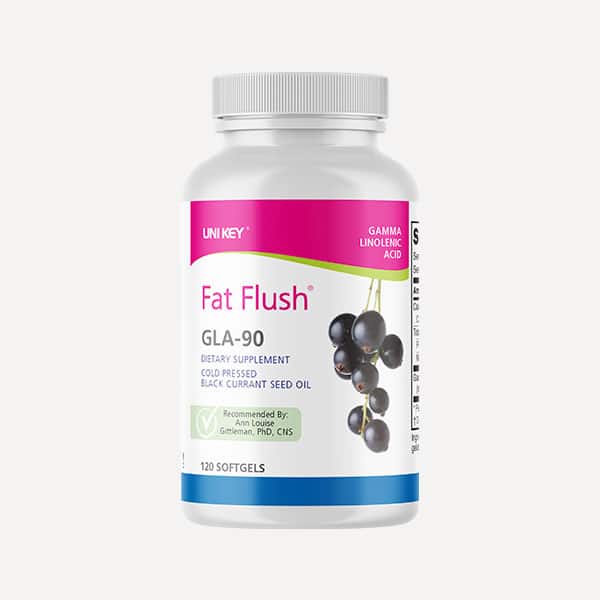Weathering the weather is the latest environmental challenge we have to deal with these days. Wildfires. Saharan dust. Humidity. Drought. Soaring temperatures. If you live in the south or in any number of the western states, you are likely to be affected by wildfire smoke or Saharan dust this summer. It seems that each year, our lungs are being assaulted more and more with the prevalence of harsh, hot temperatures and dust that can seriously impede our breathing and our overall health.
Being one of your body’s main six detoxification organs, your lungs – along with the bronchial tubes, throat, sinuses, and nose – are equally important as another major detox pathway. They are your first line of defense against unhealthy air; they hold the key to respiration. Your lungs act as the go-between for the internal and outer environment, inhaling oxygen and exhaling carbon dioxide through their pulmonary capillaries. When you’re relaxed, you breathe approximately fifteen times per minute. That number decreases in deeper states of rest and escalates with increased exercise or nervous tension.
In a single day, you inhale approximately 23,000 times, which amounts to transporting about two gallons of air every minute, or 3,000 gallons daily. As the only internal organ to interact with the outside environment, your lungs are vulnerable to dryness and certain weather conditions. What do we do to protect them from the heat, smoke, dust, dander, pollen, and other pollutants assaulting our lungs this summer? Let’s dive a little deeper into the importance of maintaining healthy lungs for your vitality and longevity.
Every function of your body relies on the oxygen intake of the lungs. In fact, each cell performs as a miniature lung by taking in oxygen from the bloodstream and eliminating carbon dioxide, which is then carried back to the lungs. That’s why it’s so essential for your lungs to have good quality air that is clean, moist, warm, and rich in oxygen – all of which are missing from the air with the smoke of the wildfires and the dust from Sahara.
When your lungs aren’t functioning properly, your body accumulates heat, propelling other health issues into motion, resulting in poor circulation, night sweats, excessive perspiration, fatigue, and listlessness. Estimates indicate that 92 million of us nationwide (that’s more than 1 out of 3) already struggle with at least one of the more common chronic respiratory diseases: sinusitis, allergies, bronchitis, and asthma. According to the American Lung Association, lung disease ranks third in fatal diseases, taking one of seven lives.
On the front lines protecting your lungs from illness are the sinuses, which are part of the upper sector of the respiratory tract. They serve as the filters for virus, bacteria, dirt and dust, pollen, and other airborne troublemakers. Sensitive to air quality, your sinuses humidify dry air and regulate temperatures, so your lungs are shielded from extremes. They can’t always function properly, however, because of an influx of environmental irritants (noxious fumes, smoke, dust, or chemical particulates), as well as to extreme temperatures and the pollutants in our everyday lives. No wonder an estimated 38 million people nationwide are battling sinus disease.
Widespread wildfire smoke, fog, and Saharan dust irritates your mucous membranes and your sinuses, which swell from inflammation. When your sinuses become infected, you may swallow the mucus that accompanies the infection, which causes gastro and abdominal upsets as well as loose bowels. Similarly, those small airways in your lungs called the bronchi can also become inflamed and blocked by mucus. If your lungs are consistently exposed to these irritants, you could develop a chronic condition of bronchitis, which can in turn reduce the oxygen-carbon dioxide process and force your heart to pump harder. Eventually, you could suffer from pulmonary hypertension, an enlarged heart, or complete heart failure.
I’ve stated throughout the years the extreme importance of maintaining a pollutant-free inner and outer environment. Your well-being is not just about the foods you eat and your active lifestyle, but also the air you breathe and the things surrounding you. So how can you protect yourself if you live in the areas of relentless wildfire smoke and Saharan dust?
Nutrient Solutions for Lung Health
Strengthen your constitution and keep your lungs and sinuses healthy with the following products that are key in keeping inflammation and infection at bay:
Immune Formula – Protect your lungs and overall health with this powerful formula containing top immune-boosting nutrients and quercetin which has anti-inflammatory effects for your lungs and your body.
Super-EPA – Another product I love for its anti-inflammatory properties. Many studies show that omega-3 fish oil can improve lung and sinus function as well as brain, heart, and joint function.
GLA-90 – GLA has many stellar benefits and its ability to reduce excess inflammation in your body, including your lungs and sinuses is also well supported by several studies.
Healing Tea, Herbs, and Spices
I recently discovered pleurisy root that I find very effective in keeping my lungs healthier from the exposure to the wildfire smoke here in Idaho. It can be found in both tincture and capsule form. As well, fenugreek tea is the herbal tea of choice because it is so effective as a lubricant; it softens and dissolves mucus in the lungs. Other lung-protecting herbs include usnea, which the Native Americans fondly named “the Lungs of the Earth” because it works against “bad” bacteria like staphylococcus, streptococcus, pneumococcus, and mycobacterium tuberculosis; osha, which is a powerful aid for bronchial irritations and has immune-stimulating properties; mullein, which has long been associated with alleviating pulmonary problems because it is an expectorant; and lobelia, a strong bronchial dilator and antispasmodic useful for overall lung congestion and asthma. The spice anise is a lung remedy as well, known to help bronchial disorders and asthma.
Aromatherapy and Nasal Irrigation
Pollutants such as smoke, dust, and pollen can bombard the nasal passages every day, inhibiting breathing and irritating the mucous membranes. Essential oils from eucalyptus and peppermint as well as camphorated salve can help clear up nasal passages. Acting as both decongestants and stimulants, these oils seem to help circulation to both the nasal and sinus mucous membranes. And, by far, one of my favorite sinus passage remedies is a saline wash with a Neti-pot. This is a simple, effective, and safe way to flush bacteria, impurities, and viruses out of the sinuses, as well as to clear them from the pollutants of smoke and dust









Such timely information! I really appreciate all of your suggestions. I’m going to try to find all the herbs you mentioned. I’m already taking the supplements listed as helpful. Thank you.
So glad you are suggesting some solutions for this problem. I live in Idaho and am struggling with the air quality.
I just moved to Idaho from New Jersey to get away from air pollution. I’m having problems here right now. I will be getting the supplements you mentioned.
So good to learn about these herbs for the lungs. I live in Dallas and the air quality is not great in the Summer.